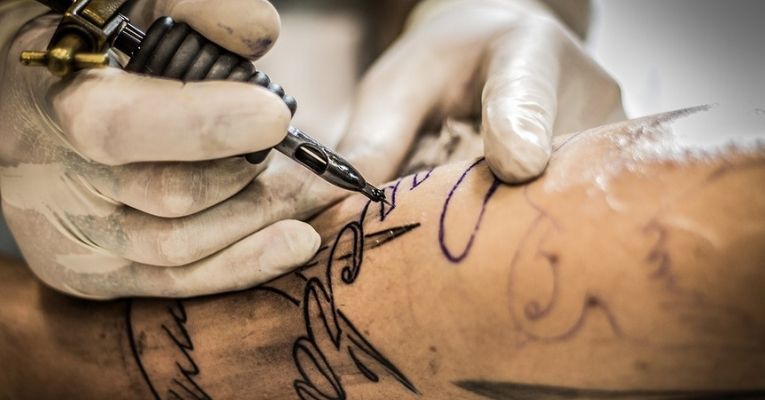News
Kentucky Lawmakers Propose Bizarre Ban on Tattooing Over Scars, but Won’t Explain Why

Kentucky health officials are proposing a ban on the practice of tattooing over scars, along with numerous other regulations for the industry. The new restriction is hidden deep within a lengthy bill that focuses specifically on the tattoo industry. It is not clear why lawmakers felt that this particular detail was important to include.
Cabinet for Health and Family Services spokesman Doug Hogan would not explain the logic behind any specific parts of the bill, but said there is still a chance for the public to express their concerns about the potential legislation.
“Regulations in this area have not been updated for about 15 years. Public comments are being accepted through the end of May. DPH will review and analyze all comments and then determine what changes, if any, need to be made to the regulations,” Hogan wrote in an email to WFPL.
As expected, the proposal drew criticism from the industry and from people who have an interest in the art of tattooing, but doctors have also objected to the proposed measure.
David Levine, a researcher and doctor at the Morehouse School of Medicine in Atlanta, said that the new law is not based on any scientific research, saying:
“I think probably the issue is that it’s a blanket statement, and it probably should have been more specific to the reason that the skin was scarred in the first place. There are people that are using cosmetic tattooing to actually reduce the appearance of scars.”
Levine did say that there are specific types of scars, known as a keloid, which can sometimes cause complications with tattoos, however, the situation is very rare and could be approached on a case by case basis.
“If you have a history of having any kind of keloid scarring, then putting the tattoo anywhere on the body would likely lead to more keloid scarring,” Levine said.
Mike Martin, president of the Alliance of Professional Tattooists, says that the industry already regulates itself when it comes to tattooing over scars and there is no history of problems. Martin explained:
“It’s not an issue if a person comes into the shop and wants to get their scar covered up because it’s embarrassing and the scar’s well-healed, and been healed for years. Our rule of thumb is a year, and then look at them and make a determination.”
“It’s person’s body, it’s their scar, you know? Can they really tell people they can’t do that to themselves? And how would they even regulate that or enforce a law on that?” Martin asked.
Buddy Wheeler, owner of Tattoo Charlie’s in both Louisville and Lexington, said that this law could have serious implications for any type of cover-up work. Wheeler explained:
“We do a lot of tattoos for people who have self-harm scars to cover those up. We do a lot of tattoos for people who have had some sort of surgery to cover those [scars] and disguise those. A tattoo itself is creating a scar — so if you take away the ability to tattoo over scars, you’re taking away the ability to do any coverups, any rework, anything like that.”
A public hearing on the proposal is scheduled for May 28 in Frankfort, Kentucky.
Typos, corrections and/or news tips? Email us at Contact@TheMindUnleashed.com
